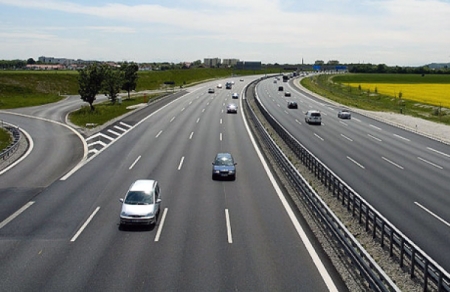The Big Almaty Ring Road (BAKAD) project concept was presented Dec. 9 to British investors at the headquarters of the European Bank for Reconstruction and Development (EBRD) in London.
 BAKAD seeks to clear Almaty’s city roads from transportation traffic, particularly addressing transit commercial vehicles, and establish near-road infrastructure. According to government information, the project envisages the construction of a highway with four and six technical category 1a traffic lanes with asphalt concrete pavement, eight interchanges and other structures, as well as an intelligent transport payment system. The project will stretch 66 kilometres through portions of the Karasai, Ile and Talgar districts in the Almaty region with a capacity of 38,000 vehicles per day, according to information provided by the government.
BAKAD seeks to clear Almaty’s city roads from transportation traffic, particularly addressing transit commercial vehicles, and establish near-road infrastructure. According to government information, the project envisages the construction of a highway with four and six technical category 1a traffic lanes with asphalt concrete pavement, eight interchanges and other structures, as well as an intelligent transport payment system. The project will stretch 66 kilometres through portions of the Karasai, Ile and Talgar districts in the Almaty region with a capacity of 38,000 vehicles per day, according to information provided by the government.
The BAKAD project is one of the biggest non-oil infrastructure public-private partnership (PPP) projects financed by the private sector. At the meeting with representatives of the international investment community, Minister for National Economy and head of the Kazakh delegation Yerbolat Dossayev said, “The total amount of investment into construction works alone is estimated at around $700 million.”
Dossayev briefed the gathering on the major provisions of the “Nurly Zhol – Path to the Future” state-of-the-nation address delivered by President Nursultan Nazarbayev, main indicators of economic development in Kazakhstan, new investment legislation, prospects for doing business in Kazakhstan in light of the Eurasian Economic Union and approaching accession to the World Trade Organisation (WTO), as well as Kazakhstan’s many state-supported measures for foreign direct investment.
The presidential address emphasised the importance of transportation infrastructure, particularly highways along international transportation routes to Kazakhstan’s development given the country’s geographical location in the centre of the Eurasian continent. In this respect, the Western Europe – Western China transitional corridor, which includes BAKAD, is a major project as many of Kazakhstan’s major trade partners are interested in the corridor’s development. BAKAD also “benefits from one of the competitive advantages of Kazakhstan – its location on the intersection of major corridors connecting Asia and Europe,” Dossayev said.
At the presentation to investors, the BAKAD project team provided information on conditions for tendering, including the technical, economic and legal aspects of the project.
First Deputy Minister for Investment and Development Zhenis Kassymbek underlined existing interest on the part of international financial institutions and major investment banks in implementing the project. He stressed that the success and quality of the project has great significance for Kazakhstan as “future implementation of PPP projects in Kazakhstan depends on it.”
Concerning state support for foreign direct investment, Dossayev stated in November that to increase the attractiveness of capital-intensive projects, including BAKAD, Kazakhstan’s legislation introduced a possibility of concluding a direct agreement between the creditor, the state and the concessionaire on projects of special importance and a possibility of recourse to international arbitration.
“Kazakhstan at the moment has great opportunities for the development of PPP, and I personally, and the government hope that the project will be successfully implemented in collaboration with our private partners,” he said.
In July 2012, the Ministry of Transport and Communications of Kazakhstan, the International Finance Corporation (IFC) and the EBRD signed a memorandum “On technical cooperation for the implementation of the concession project in the road sector of the Republic of Kazakhstan.” Within the framework of this memorandum, construction of BAKAD was selected as a pilot project. According to the signed memorandum, EBRD and IFC will provide technical and legal assistance for the selection of concessionaires capable of managing large-scale road projects and conduct tendering procedures.
At the moment, there are 30 PPP projects in Kazakhstan at various stages of readiness in sectors such as transport, health, education, prison system, urban infrastructure, culture and sport – all totaling $2.7 billion. The majority of those projects, 25 out of 30, totaling $1.6 billion, are being implemented in rural areas.
